- Home
- Ian Mcewan
Machines Like Me Page 12
Machines Like Me Read online
Page 12
It was in Gorringe’s story that the particulars of this case emerged. He told the court that after they made love, they drank more vodka and lemonade, that the post-coital mood was celebratory. She asked him if he had any objection to her texting her new friend Amelia to announce that she and Peter were an ‘item’. Within a minute there came a reply in the form of a laughing emoticon making the thumbs-up sign. The case for the defence should have been simple. But the messages were not on Miranda’s phone. Amelia had been living in a hostel for problem teenagers, and had gone off backpacking and couldn’t be traced. The phone company in Canada would not release their record of texts without a formal approach from the police. But the police had targets to meet for solved rape cases and were keen to see Gorringe go down. They knew, as the jury did not, that he had previous convictions for shoplifting and affray.
In evidence, Miranda was emphatic that she had no friend called Amelia and that the story of the text was a fabrication. Two of Miranda’s old school friends gave evidence in court that they had never heard mention of this Amelia. The prosecution suggested that it was too convenient, a vanishing rootless teenager. If she was on a beach in Thailand, and if Miranda was her friend, where were the customary teenage photos and messages? Where was Miranda’s original message? Where was that merry emoticon?
Deleted by Miranda, said the defence. If the court would suspend proceedings and serve an order on the British subsidiary of the phone company to release its copies of the texts, these disputed versions of a summer evening would be settled. But the judge, whose manner throughout was impatient, even irritable, was in no mind to let the matter drag on. Mr Gorringe’s defence had already had many months to mount their case. A court order should have been sought long ago. Memorably, the judge noted that a young woman who took a bottle of vodka to a young man’s room should have been aware of the risks. Some press reports portrayed Gorringe as a guilty sort. He was large, loose-limbed, he lounged in the dock, he didn’t wear a tie. He appeared not to be awed by the judge or his court and its procedures. The jury was unanimous in favouring Miranda’s story over his. Later, in his summing-up, the judge did not find the accused a credible witness. But certain sections of the press were sceptical about Miranda’s story. The judge was criticised for not putting the matter beyond doubt by calling in her text records.
A week later, before sentencing, there were pleas of mitigation. The headmaster of their school spoke up for both ex-pupils – hardly helpful. Gorringe’s mother, who was too scared to be articulate, tried bravely but wept from the witness stand. No use at all to her son. He rose for sentencing and was impassive. Six years. He shook his head, as the accused often do. If he behaved himself in prison, he would be gone for half his sentence.
The jury had confronted a stark choice. Miranda raped and honest, or unmolested and a cruel liar. Naturally, I could bear neither. I didn’t take Gorringe’s murderous threats as proof of his innocence, as the intentions of a wronged man looking for redress. A guilty man could be furious at his loss of freedom. If he could threaten to kill, he could surely rape.
Beyond the either-or was a dangerous middle ground where the half-forgotten student anthropologist in me could free his imagination of all constraint. Grant the insidious power of self-persuasion, mix in some hours of carefree teenage drinking and blurred recall, then it would have been possible for Miranda to feel genuinely that she’d been violated, especially if afterwards there were elements of shame; equally possible for Peter Gorringe to convince himself he had permission when he desired it so urgently. But in the criminal courts, the sword of justice fell on innocence or guilt, not both at once.
The story of the missing texts was particular, inventive, easily verified or disproved. By telling it to the court, Gorringe as rapist may have calculated that he had nothing to lose. A wild fiction and he almost got away with it. If he was innocent, if the texts existed, then the system had let him down. Either way, it had let itself down. His story should have been checked. On that, I was with the sceptical press. The blame could lie with an inexperienced legal aid team, too hard-pressed, too sloppy. Or with policemen greedy for success. And certainly with an ill-tempered judge.
On my way back from the Common, I slowed as I turned into my road. Now I knew as much as Adam. I hadn’t spoken to him since the evening before. After a painful, sleepless night, I had got up early to go to the hospital. As I went through the kitchen I had passed close by him. He was sitting at the kitchen table as usual, connected to his power line. His eyes were open and had that tranquil, faraway look whenever he retreated into his circuits. I had hesitated there for a whole minute, wondering what I had got into with my purchase. He was far more complicated than I’d imagined, and so were my own feelings about him. We had to confront each other, but I was exhausted from two broken nights and needed to get to the hospital.
What I wanted now, returning from my walk, was to retreat to my bedroom for a dose of painkillers and a nap. But he was standing facing me as I came in. At the sight of my arm suspended in its sling, he gave a cry of astonishment or horror. He came towards me, arms spread.
‘Charlie! I am so sorry. So sorry. What a terrible thing I did. I honestly didn’t intend it. Will you please, please accept my most sincere apologies.’
It looked as though he was about to embrace me. With my free hand, I pushed past – I disliked the too-solid feel of him – and went to the sink. I turned on the tap and bent low to drink deeply. When I turned, he was standing close, no more than three or four feet away. The moment of apology had passed. I was determined to look relaxed – not so easy with my arm in a sling. I put my free hand on my hip and looked into his eyes, into the nursery blue with its little black seeds. I still wondered what it meant, that Adam could see, and who or what did the seeing. A torrent of zeros and ones flashed towards various processors that, in turn, directed a cascade of interpretation towards other centres. No mechanistic explanation could help. It couldn’t resolve the essential difference between us. I had little idea of what passed along my own optic nerve, or where it went next, or how these pulses became an encompassing self-evident visual reality, or who was doing my seeing for me. Only me. Whatever the process was, it had the trick of seeming beyond explanation, of creating and sustaining an illuminated part of the one thing in the world we knew for sure – our own experience. It was hard to believe that Adam possessed something like that. Easier to believe that he saw in the way a camera does, or the way a microphone is said to listen. There was no one there.
But as I looked into his eyes, I began to feel unhinged, uncertain. Despite the clean divide between the living and the inanimate, it remained the case that he and I were bound by the same physical laws. Perhaps biology gave me no special status at all, and it meant little to say that the figure standing before me wasn’t fully alive. In my fatigue, I felt unmoored, drifting into the oceanic blue and black, moving in two directions at once – towards the uncontrollable future we were making for ourselves where we might finally dissolve our biological identities; at the same time, into the ancient past of an infant universe, where the common inheritance, in diminishing order, was rocks, gases, compounds, elements, forces, energy fields – for both of us, the seeding ground of consciousness in whatever form it took.
I came out of this reverie with a start. I confronted an immediate and unpleasant situation and wasn’t inclined to accept Adam as a brother, or even a very distant cousin, however much stardust we shared. I had to stand up to him. I started talking. I told him how I came by a large sum of money after my mother’s death and the sale of her house. How I decided to invest it in a grand experiment, to buy an artificial human, an android, a replicate – I forget which term I used. In his presence, they all sounded like insults. I told him exactly how much I paid. Then I described for him the afternoon when Miranda and I carried him on a stretcher into the house, unpacked him, charged him up, when I tenderly gave him my clothes, and discussed the formation of his personality. As I w
ent along, I wasn’t certain of my purpose, or why I was talking so fast.
It was only when I got there that I knew what I had to say. My point was this: I had bought him, he was mine, I had decided to share him with Miranda, and it would be our decision, and only ours, to decide when to deactivate him. If he resisted, and especially if he caused injury as he had the night before, then he would have to be returned to the manufacturer for readjustment. I finished by saying that this was Miranda’s view, as she expressed it earlier this afternoon, just before we made love. This last intimate detail, for the lowest of reasons, I needed him to know.
Throughout, he remained impassive, blinking at irregular intervals, holding my gaze. When I finished, nothing changed for half a minute and I began to think I had gone too fast, or spoken gibberish. Suddenly, he came to life (to life!), looked down at his feet, then turned and walked a few paces away. He turned again to look at me, drew breath to speak, changed his mind. A hand went up to stroke his chin. What a performance. Perfect. I was ready to give him my devoted attention.
His tone was of the sweetest, most reasonable kind. ‘We’re in love with the same woman. We can talk about it in a civilised manner, as you just have. Which convinces me that we’ve passed the point in our friendship when one of us has the power to suspend the consciousness of the other.’
I said nothing.
He continued. ‘You and Miranda are my oldest friends. I love you both. My duty to you is to be clear and frank. I mean it when I say how sorry I am I broke a bit of you last night. I promise it will never happen again. But the next time you reach for my kill switch, I’m more than happy to remove your arm entirely, at the ball and socket joint.’
He said this kindly, as though offering help with some difficult task.
I said, ‘That would be messy. And fatal.’
‘Oh no. There are ways of doing it cleanly and safely. A practice refined in medieval times. Galen was the first to describe it. Speed is of the essence.’
‘Well, don’t take my good arm.’
He had been speaking through a smile. Now he began to laugh. So here it was, his first attempt at a joke and I joined in. I was in a state of exhaustion and suddenly found it wildly hilarious.
As I passed him on my way to the bedroom he said, ‘Seriously. After last night I came to a decision. I’ve found a way to disable the kill switch. Easier for all of us.’
‘Good,’ I said, not quite taking this in. ‘Very sensible.’
I entered my room and closed the door behind me. I kicked off my shoes, and lay on the bed on my back, softly laughing to myself. Then, forgetting about the painkillers, I was asleep in less than two minutes.
*
The next morning I turned thirty-three. It rained all day and I worked for nine hours, content to be indoors. For the first time in weeks, my profit for the day was in three figures – just. At seven I stood up from my desk, stretched, yawned, looked in my drawer for a clean white shirt, then took a bath. I had to hang my arm over the edge to protect the cast from dissolving, but otherwise I was in good shape. I lay in the heat and rising steam, singing snatches of Beatles songs in the tiled echo, the new old Beatles, and occasionally topping up the hot with my healed toe now fit to turn a tap. I soaped myself single-handed. Not easy. Thirty-three seemed as significant as twenty-one and Miranda was treating me to dinner. We were meeting up in Soho. The simple prospect of a rendezvous with her raised my spirits. The view I had along the length of my body was uplifting in the misty light. My penis, capsized above its submerged reef of hair, winked encouragement with a cocky single eye. So it should. The muscles of my gut and legs looked nicely sculpted. Heroic even. I wallowed in self-love, happier than I’d been in weeks. I’d been trying not to think about Adam all day and had almost succeeded. He’d been in the kitchen for hours, he was there now – ‘thinking’. I didn’t care. I sang louder. In my twenties, some of my most cheerful times were spent getting ready to go out. It was the anticipation rather than the thing itself. The release from work, the bath, music, clean clothes, white wine, perhaps a pull on a joint. Then stepping out into the evening, free and hungry.
The pads of my fingers were well wrinkled by the time I got out. An adaptation, I’d read, of our sea- and river-loving ancestors to enable them to catch fish. I didn’t believe it, but I liked the story, the way it lay beyond disproof. We didn’t catch fish with our feet, so toes didn’t need to wrinkle like that. I dressed in a hurry. In the kitchen I passed Adam without a word – he didn’t look round – and put up my umbrella to walk the few hundred yards down a squalid side-street to where my wreck of a car was parked. This short depressing stroll often brought me to my usual lament, to the song of my unhappy lot. But not tonight.
My car dated from the mid-sixties, a British Leyland Urbala, the first model to do 1,000 miles on a single charge. It had 380,000 on the clock. Rust was eating it away, especially around the dents in the bodywork. The wing mirrors had snapped or been snapped off. There was a long white rip in the driver’s seat and a piece of the steering wheel, from eleven to three o’clock, was missing. Years ago, a girl had been sick on the back seat after a rowdy Indian dinner and not even professional steam-cleaning could erase the scent of vindaloo. The Urbala had only two doors and it was awkward to get an adult into the back seat. But there was little to go wrong with these engines and the car ran smooth and fast. It was an automatic and easy to drive with one hand.
I took my usual route, singing all the way, to Vauxhall, then downstream with the river on my left, past Lambeth Palace and the abandoned St Thomas’s Hospital, where scores or hundreds of the homeless squatted. The windscreen wiper on the driver’s side worked every ten seconds or so. The wiper on the passenger side thumped out a beat to my pop tunes. I crossed the Thames by Waterloo Bridge – in both directions, best views in town – then slipped down to take the sinuous curves of the old tram tunnel at speed and burst in triumph into Holborn – not the shortest route to Soho, but my favourite. I was hitting some high notes on a new Lennon song. What was right with me? Thirty-three today and in love. The unaccountable brew of hormone cocktails, endorphins, dopamine, oxytocin and all the rest. Cause or effect or association – we knew next to nothing about our passing moods. It seemed objectionable that they should have a material base. On this particular evening, I hadn’t touched grass or even had a sip of wine – there was nothing in the house. Yesterday I had been almost thirty-three, and in love and I hadn’t felt like this. £104 up on the morning would never have such an effect. I should have been sobered by yesterday’s exchange with Adam about his kill switch, by all the matters I hadn’t raised with Miranda, by my poor wrist. But a mood could be a roll of the dice. Chemical roulette. Free will demolished, and here I was, feeling free.
I parked in Soho Square. I knew of a three-metre stretch where the yellow lines had been tarred over in error and the space was legal. Most cars wouldn’t fit. Our restaurant, a one-room shoebox with fierce strip lighting, was in Greek Street, just a few doors along from the famous L’Escargot. There were only seven tables. In a corner was an open kitchen, a tiny space defined by a brushed-steel counter, where two chefs in white gear cooked in sweaty proximity. There was a plongeur, and one waiter to serve and clear tables. Unless you knew the chef, or knew someone who did, you couldn’t book. Miranda had a friend at one further remove. On a quiet night it was enough.
She was there before me, already seated, facing the door as I came in. In front of her was an untouched glass of sparkling water. Beside it, a small parcel done up with green ribbon. By the table, in an ice bucket on a stand, was a bottle of champagne, its neck bound in a white napkin. The waiter who had just drawn the cork was walking away. Miranda looked especially elegant, even though she’d been at seminars all day and had left the house wearing jeans and a t-shirt. She would have taken with her a bag of clothes and make-up. She wore a black pencil skirt, and a tight black jacket with boxy shoulders and silver thread woven through the fabric. I’d neve
r seen her before with lipstick and mascara. She had made her mouth smaller, in a dark red bow, and dusted away the faint freckles on the bridge of her nose. My birthday! At the same time, as I entered the bright white light and closed the restaurant’s glass door behind me, I felt a sudden elated detachment. I didn’t, I couldn’t, love her less. But I no longer had to feel anxious or desperate about her. I remembered my truisms from the day before. Here she was, and whatever she was, I would find out and celebrate her, regardless. I could love her, so I thought, and remain immune, unharmed.
All this in a flash as I squeezed between two crowded tables to get to her. She raised her right hand and in mock formal fashion I bowed and kissed it. As I sat down she gazed at my sling with evident pity.
‘Poor darling.’
The waiter – he looked sixteen and serious– came with glasses, and filled them while holding his hand behind his back. A professional.
As we raised and clinked them across the table, I said, ‘To Adam not breaking more of my bones.’
‘That’s rather limiting.’
We laughed, and it seemed as though laughter at the other tables followed and rose with ours. What a wild place we were in. She didn’t know how much, how little, I knew. I didn’t know what to believe about her, whether she was the victim or perpetrator of a crime. It didn’t matter. We were in love and I remained convinced that even if I came to know the worst, it would make no difference. Love would see us through. It should have been easier, therefore, to broach any of the issues that my cowardice inclined me to suppress. And I was on the edge of doing just that, of saying more about my broken scaphoid, when she took my good hand in hers across the white linen.

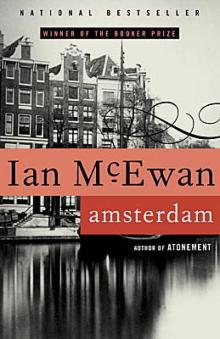 Amsterdam
Amsterdam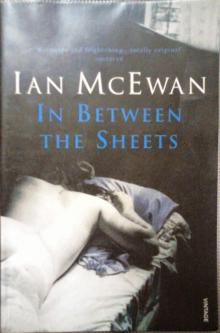 In Between the Sheets
In Between the Sheets Atonement
Atonement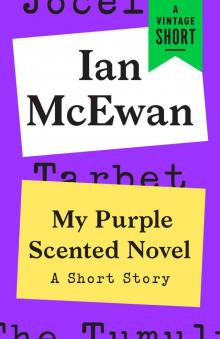 My Purple Scented Novel
My Purple Scented Novel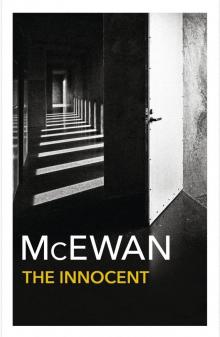 The Innocent
The Innocent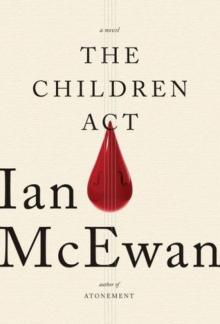 The Children Act
The Children Act Enduring Love
Enduring Love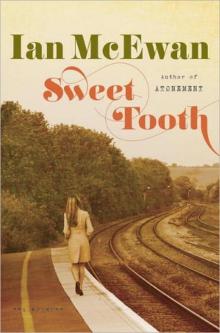 Sweet Tooth
Sweet Tooth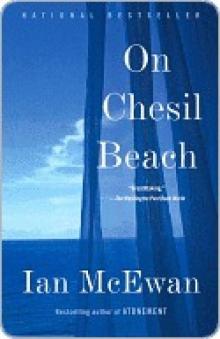 On Chesil Beach
On Chesil Beach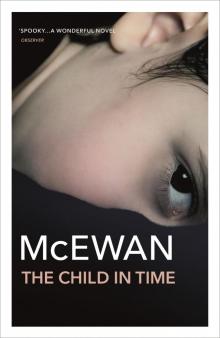 The Child in Time
The Child in Time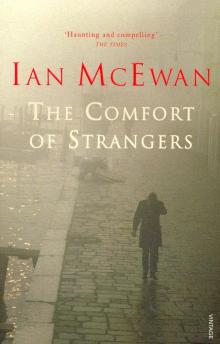 The Comfort of Strangers
The Comfort of Strangers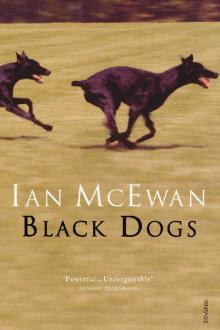 Black Dogs
Black Dogs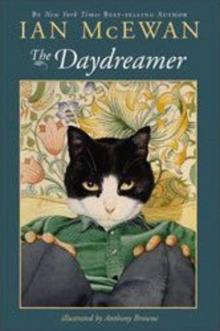 The Daydreamer
The Daydreamer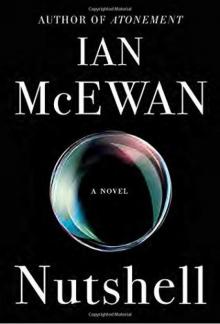 Nutshell
Nutshell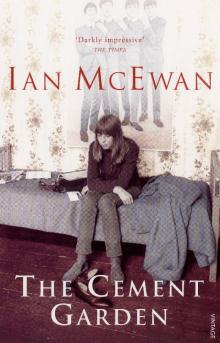 The Cement Garden
The Cement Garden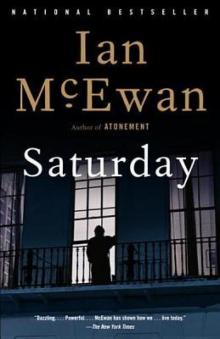 Saturday
Saturday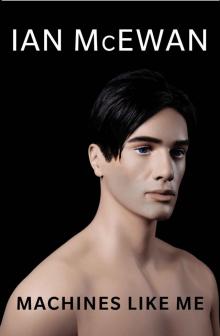 Machines Like Me
Machines Like Me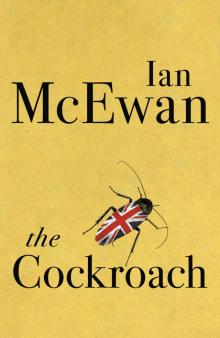 The Cockroach
The Cockroach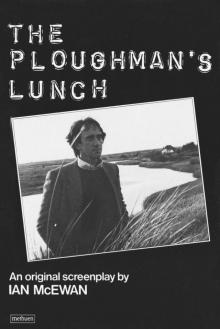 The Ploughman’s Lunch
The Ploughman’s Lunch